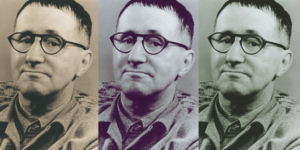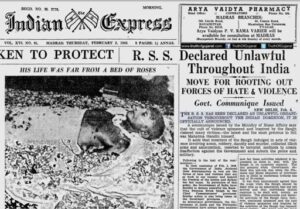“Happy Birthday, Dear Constitution.”
Why do these congratulatory words sound false today? How would the constitution – which is today gasping for breath; bleeding from a hundred cuts; mocked and pilloried everyday – respond to the garlanding of its mutilated body?
The constitution was conceived as a living organism; an entity which would grow and evolve with each passing generation. So, there was a sense of mortality built in it – all that lives, also dies. But it grows too.
The makers of the constitution were acutely aware of the fact that what they were creating will not last forever in the same form. We need to recall the words of Jawaharlal Nehru on the occasion of the adoption of the first Objectives Resolution, moved by him:
“We shall frame the constitution, and I hope it will be a good constitution, but does anyone in this House imagine that, when a free India emerges, it will be bound down by anything that even this House might lay down for it? A free India will see the bursting forth of the energy of a mighty nation. What it will do and what it will not, I do not know [except] that it will not consent to be bound down by anything.”
The sincere humility of these words cannot be missed. The constitution, as framed, was not going to be the final word in all affairs of life of the people of India. Trust in the future generations and refusal to lay down everything for them required great self-confidence; to believe that the constitution will keep getting nourishment from future generations, ensuring that it continues to be a living document:
“It may be that the constitution this House may frame may not satisfy that free India. This House cannot bind down the next generation, or the people who will … succeed us in this task.”
The idea was to respond to the moment and catch its magic:
“…we are on the eve of revolutionary changes, revolutionary in every sense of the word, because when the spirit of a nation breaks its bonds, it functions in peculiar ways and it should function in strange ways. It may be that the Constitution, this House may frame, may not satisfy that free India.”
Nehru wanted his colleagues to resist the temptation of getting caught in too many details:
“Some people imagine that what we do now may not be touched for 10 years or 20 years. If we do not do it today, we will not be able to do it later. That seems to me a complete misapprehension… Therefore, let us not trouble ourselves too much about the petty details of what we do, those details will not survive for long, if they are achieved in conflict. What we achieve in unanimity, what we achieve by co-operation is likely to survive. What we gain here and there by conflict and by overbearing manners and by threats will not survive long. It will only leave a trail of bad blood.”
These are words we must ponder over again and again – the difference between something achieved with the spirit of unanimity and something done in conflict. It is the spirit of accommodation which informed the process of the making of the constitution. You have to be patient if you want all voices to be heard and recorded. A willingness to listen and be persuaded is the most striking thing that you come across while reading the proceedings of the Constituent Assembly. Amendments are moved in large numbers, and also withdrawn.
There are differences in viewpoints, philosophical outlooks of the members, but they strive to create a document which will make the people supreme and paramount in the affairs of the country. While discussing the objection raised by the princes in this regard, Nehru says:
“I am informed they complain of the following words contained in the Resolution – ‘Sovereignty belong to the people and rests with the people’. That is to say, the final decision should rest with the people of the States. They object to this. It is certainly a surprising objection. It may not be very surprising if those people who have lived in an atmosphere of mediaevalism do not give up their cherished illusions, but in the modern age how can a man believe for a moment in the divine and despotic rights of a human being? I fail to understand how any Indian, whether he belongs to a State or to any other part of the country, could dare utter such things.”
The sovereignty of the people also means that they are rights-bearing beings. Under no circumstances, the members passionately make clear, will the people be deprived of their civil liberties and their fundamental rights. The omission of the right to worship in the initial draft is pointed out with surprise.
The makers of the constitution were aware of their limitations and yet were very conscious of the responsibility bestowed to them to chart a course on which the people will realise their full potential and be autonomous beings.
It was an ambitious project to found a nation which will find its due, just and respectable place in the world community. How can it happen when there were people inhabiting it who could not feel equal and respected? So, the constitution was designed to give confidence to the people that were historically wronged; for them to realise their rights as individuals and communities and also persuade others to join them in their endeavour and lend their hands to them. That is the meaning of the word ‘fraternity’, introduced by Dr B.R. Ambedkar in the preamble of the constitution.
The constitution, in this manner, has a deep historical memory; of the injustices that large sections of Indians had been subjected to. And it found ways to undo them and eradicate hierarchies that were the defining feature of traditional societies. To do so, it looked towards experiments done in different parts of the world, at different historical junctures, and learnt from them.
The constitution does not hark back to the past. It is a forward-looking document. It lays down a framework to secure freedom, equality and justice for all. There is a sense of urgency in it regarding certain issues for which one cannot wait – women, Scheduled Castes and Scheduled Tribes cannot wait. There are old ways which cannot be allowed to continue.
But it understands that the best way for societies to progress is to make every effort to take all sections along. Wait, but walk together. Avoid conflict as far as possible.
As said above, the constitution-makers expected their successors to give life and meaning to the constitution in order to prove themselves worthy citizens. The best moments are when the ambit of rights is expanded. New rights are recognised and enshrined, traditional hesitations are overcome.
One of the best moments after November 26, 1949 was in 2009, when the right to education was incorporated as a fundamental right. That was a legislative effort. But could that have been possible without the streets calling for it?
One of the most glorious moments when the constitution was given meaning was when lakhs of people turned to the preamble to make it their manifesto in their struggle against the unconstitutional Citizenship Amendment Act (CAA). Our constitution-makers would have felt proud that they created something their successors found useful in their lives; that what they had accomplished was also a futuristic feat.
And they must have felt diminished when the Supreme Court put aside the habeas corpus petitions; when state assemblies passed laws against religious conversion, putting roadblocks in the union between Hindu women and men from other religions; after Parliament ratified the reading down of Article 370; after the Supreme Court ordered a National Register of Citizens (NRC) to be prepared.
The refusal of the Supreme Court to concede to the demand of the state to annul the freedom given to Anand Teltumbde is a small homage to the constitution makers on the eve of Constitution Day.
The constitution is a challenge to us citizens, and to institutions, to revive that spirit of accommodation and hospitality; to help people get their dignified place.
As Constitution Day draws to a close and inches towards its 75th anniversary, we need to ask whether we, as a people, have proved equal to the expectations that it has from us. We need to ask why people who tried to emulate the ideals of that living document are in jail and how others are in positions to extinguish its spirit.
How did we, in spite of the constitution, turn into a people who elected those as our leaders who now openly own up to mass murder? Why did we not hear and remember the words of Satchidanandan Sinha, provisional chair of the Constituent Assembly?
“Republics are’ created – these are the words which I commend to you for your consideration – by the virtue, public spirit, and intelligence of the citizens. They fall, when the wise are banished from the public councils, because they dare to be honest, and the profligate are rewarded, because they flatter the people, in order to betray them.”
(Apoorvanand teaches Hindi at Delhi University. Courtesy: The Wire.)




